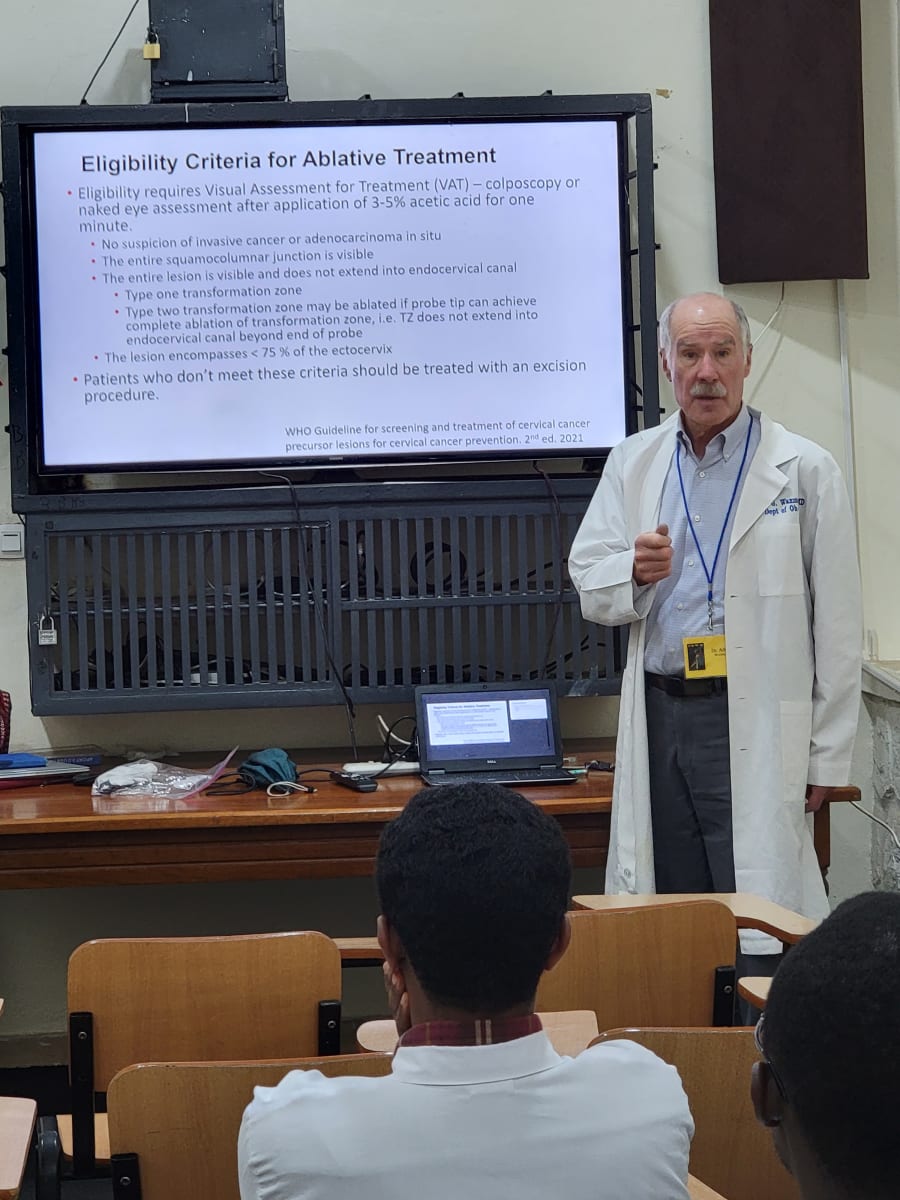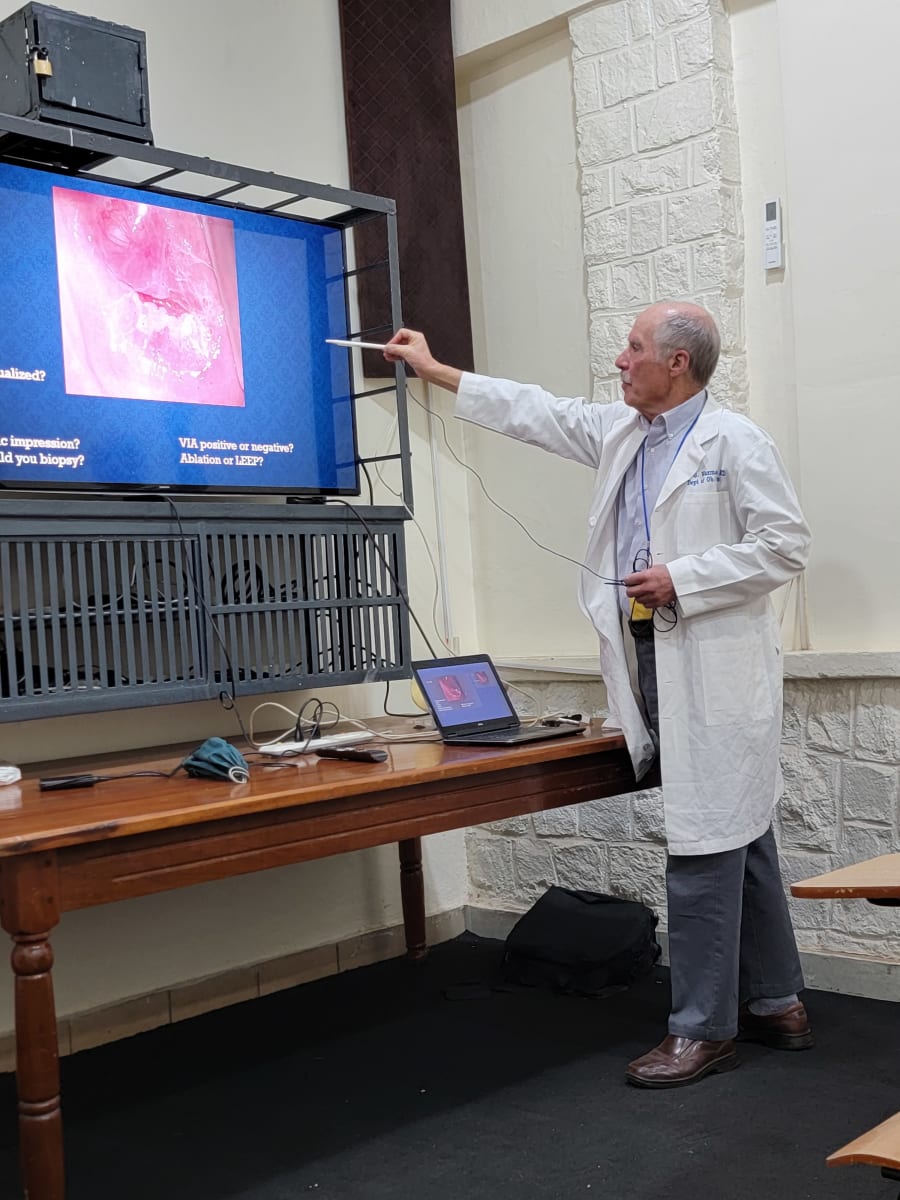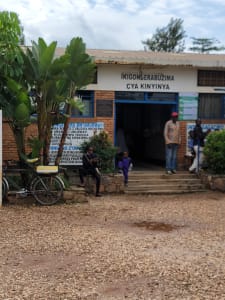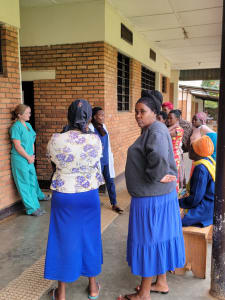The World Health Organization, in 2018 called for the elimination of cervical cancer, defined as no more than 4 cases per 100,000 women. In Rwanda in 2020, the incidence rate was 28.2, seven times the target rate and 4.5 times the rate in the U.S.A. The mortality rate from cervical cancer is almost 10 times that seen in the U.S. A principal reason for the disparity in rates of this largely preventable cancer is that in spite of a robust HPV immunization program, Rwanda lacks a screening program to diagnose and treat cervical cancer's easily treated precursor lesions. The University of Rwanda in conjunction with several U.S. Universities and NGOs has worked over the past 2 years to establish such a program. While the rudiments of this program are slowly falling into place at the main teaching hospital in Kigali. I will be joining a group of women's health providers training Rwandan ob/gyn residents and nurses to screen for cervical cancer screening using HPV testing and visual inspection with acetic acid (VIA) and to treat identified lesions with LEEP and thermal ablation, effective outpatient therapies. I will be working mostly in outlying district hospitals. My team will also focus on local nurses and public health professionals to establish a culture of screening within the community.
The initial beneficiaries of the project will be women accessing several small district hospitals within the city of Kigali. These hospitals were selected because of their proximity to the University's main teaching Hospital where therapy and higher order referrals are available. The district hospitals are public hospitals and the women are mostly of lower income who have not had prior screening, and therefore are at highest risk for cervical cancer.
Secondary beneficiaries will be the nurses, medical students and residents who will work with us and receive training in the techniques of VIA, LEEP, and thermal ablation.
This is an ongoing project that has conducted several missions each year over the past 2 years. We are already seeing the start of a culture of screening among the health care professionals whom we have previously worked with and a desire for screening among the women we have served. We anticipate a multiplicative impact as each woman screened and each cancer prevented lead to a greater demand for screening services. The more the demand, and the more nurses involved in the screening program, the easier and more likely it will be that programs will be established that will continue after these training missions cease. In addition, the more medical students and residents trained, the more likely cervical cancer screening will become a part of mainstream women's healthcare in Rwanda.












Our team of 10 U.S. healthcare providers included one three nurse practitioners, one family physician, two gynecologic oncologists, two gyn onc fellows, one medical student and me as the lone general ob/gyn. We were united in our respect for the women of Rwanda and the belief that the unacceptably high rates of cervical cancer there can be reduced with population-based screening and immunization plus appropriate treatment. While the Ministry of Health and the University of Rwanda Medical School have other programs for immunization and cancer treatment, our challenge has been to help the Rwandan doctors and nurses establish a culture of cervical screening and develop the technical skills to screen women and triage or treat preinvasive lesions.
This was my third mission to Kigali, and with each one, I’ve seen incremental progress. I started the week at the Kibagabaga District Hospital screening women for cervical cancer who were to have fistula surgery later in the week. During this clinic session, we diagnosed and triaged for treatment one woman with a probable precancerous lesion. I worked with a young Rwandan medical student who had never previously done a pelvic exam. It was gratifying to see the progress in his understanding and technical skill with the exam during our time together. The rest of the week was divided between smaller hospitals at Kaciryu and Kinyinya, also within the Kigali city limits. Numerous women presented for screening and at each facility I helped supervise a dedicated nurse at each clinic. Both of the nurses were enthusiastic about cancer prevention and showed increasing skill during the time I and my team worked with them.
Screening for cervical cancer in different parts of the city of Kigali is quite variable, with different techniques available at different levels of healthcare facility. At the main teaching hospital, CHUK, cotesting, i.e. combined Pap tests plus HPV testing, is used as in the U.S. At the smaller facilities where my group worked, only the low-tech methodology, visual inspection with acetic acid (VIA), was available. In much of the country, not even that technique is used. The technique of VIA consists of inserting a vaginal speculum and applying dilute acetic acid to the cervix, then examining with a bright light (a headlamp) to see if areas near the transformation zone of the cervix turn white. In the Kinyinya clinic, the nurse had to make her own cotton swabs to apply the vinegar solution.
I ended the week, and continued into the following Monday at CHUK, doing classroom teaching to the ob/gyn residents from the University of Rwanda. My colleagues and I covered cervical cancer and HPV epidemiology, screening and treatment modalities and facilitated a case-based discussion of diagnosis and treatment of precancerous lesions of the cervix.
It is the hope of the University of Rwanda Ob/Gyn leadership and our group from the U.S., that with training and screening sessions such as this, coupled with ongoing distance learning and periodic in- person follow up, we can establish a culture of screening and the infrastructure to make screening self-sustaining. We already conduct the distance learning with monthly Zoom-based Project ECHO cervical pre-cancer tumor boards sponsored by Brown University. As for the periodic in-person follow-up, I’ll be returning to Kigali in October. Again I am very grateful to the Doximity Foundation for their assistance in supporting my travel.